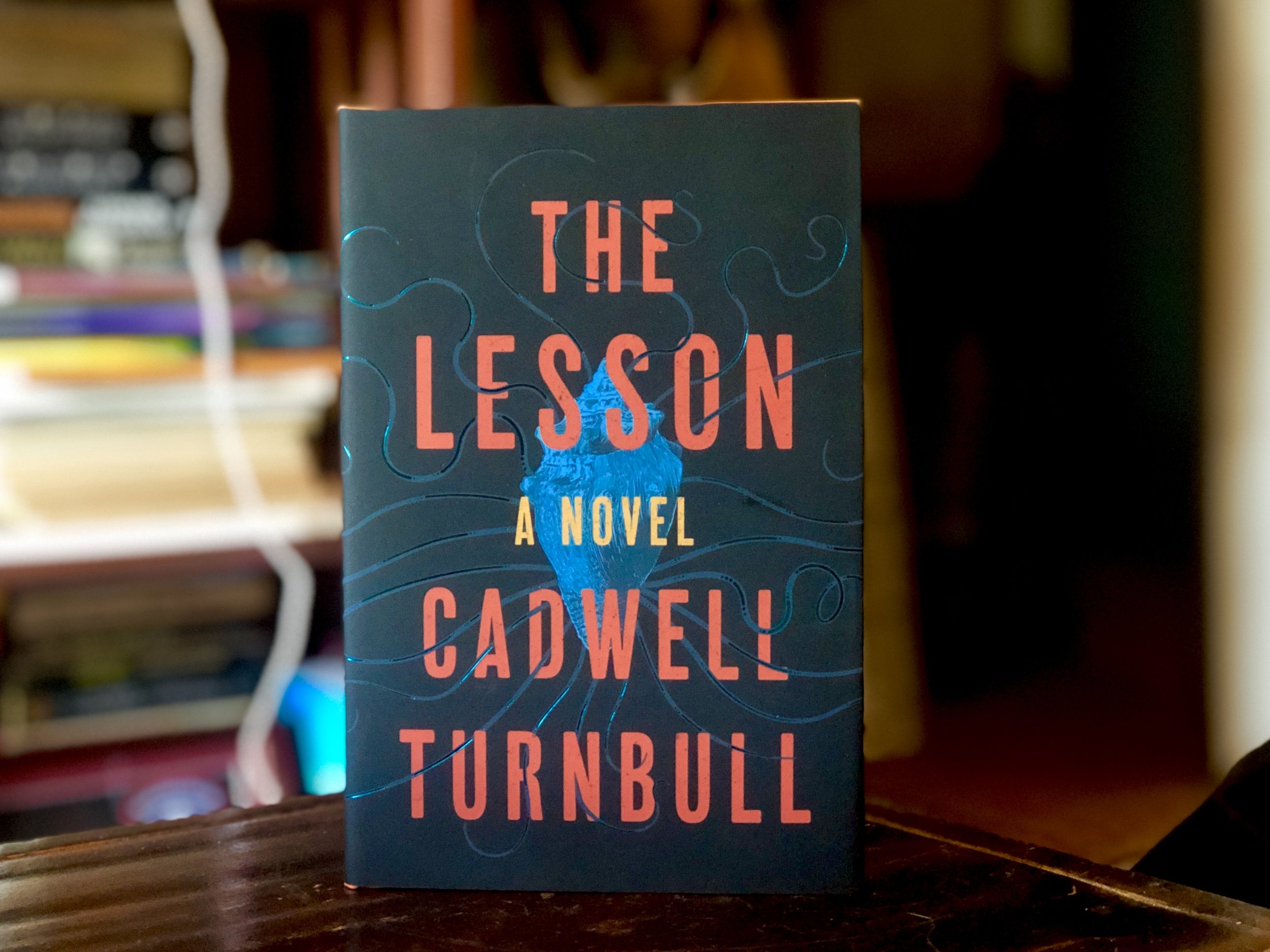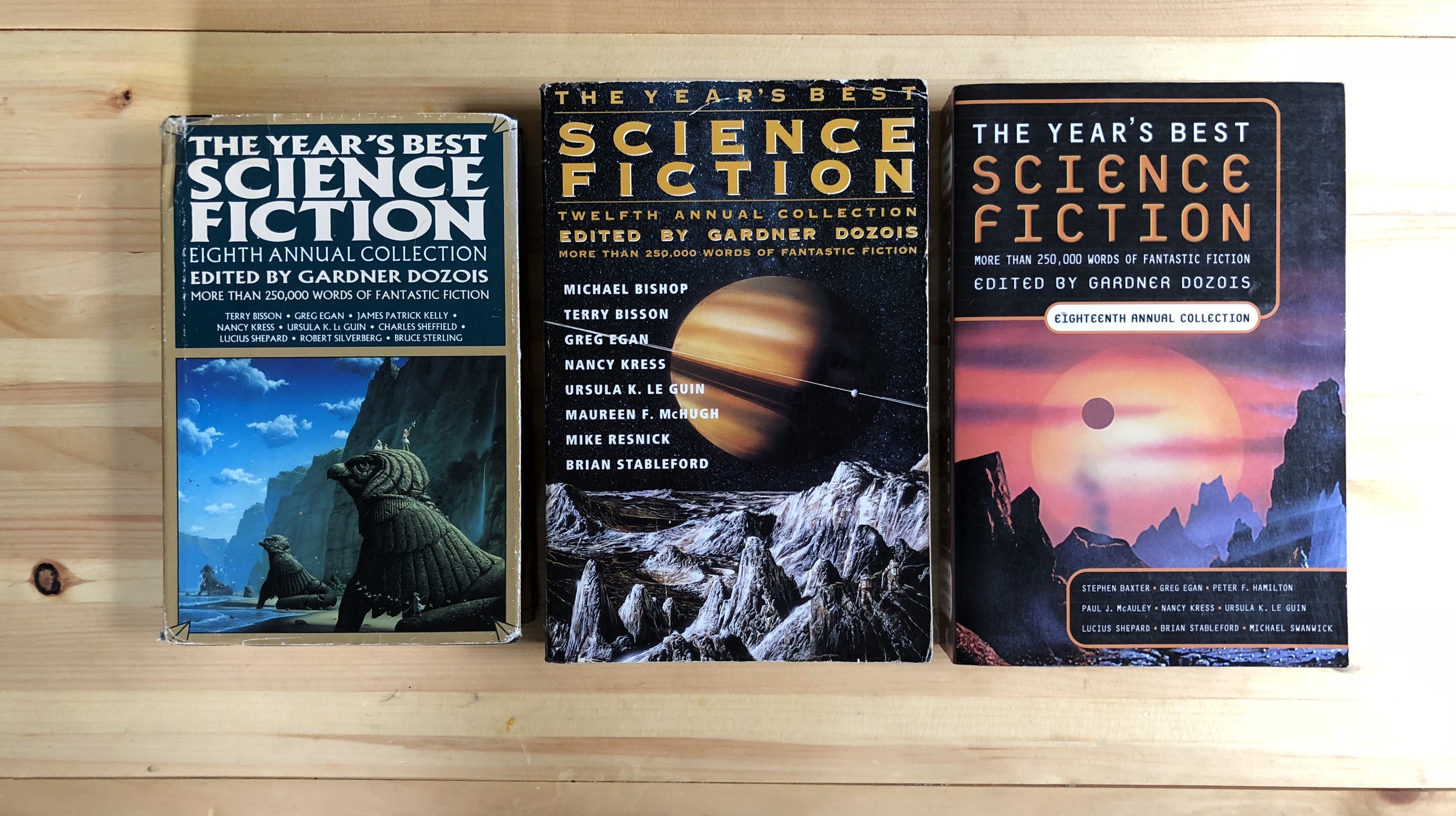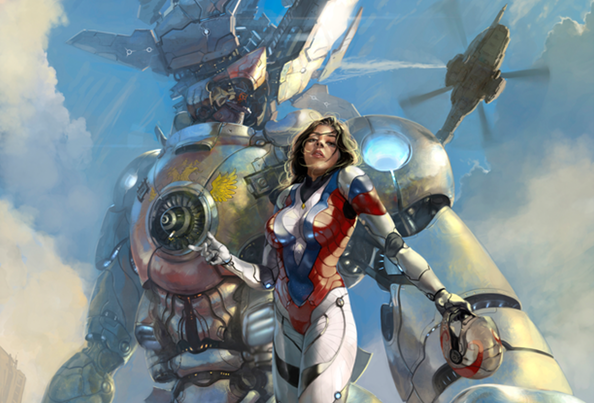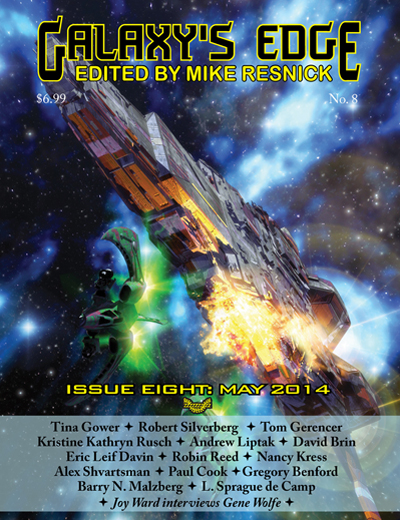How do we use the genre to prepare soldiers for the conflicts of that they’ll face in the decades ahead? If we think about the world that we’ll inhabit by 2050, think about the gulf in time between 2018 and 1986: 32 years ago. Cell phones were in their infancy. With those primitive phones in mind, think about how much more computing power we now carry with us, and the types of things that we can do. Just in the last couple of days, I navigated over 500 miles, using real-time directions and incident reports, I hailed a stranger in a car, caught some creatures with a geolocation-based game, and looked up a restaurant on a map all from my phone. The best science fiction stories don’t just imagine how technology functions, but how it’s used. Look at how people have abused app-based technologies or platforms like YouTube, Twitter or Facebook, either through routine mass-harassment from afar to soliciting like-minded friends for terrorist activities. Look at how the proliferation of cameras on these devices and how that correlates with the rise in coverage of police brutality, how these networks can bring marginalized communities together, or how the crowd can amass incredible amounts of data — all from their phones. This was the stuff of science fiction just decades ago.
We are living in a science fictional age. Think about some piece of technology that you might use in the field, and try to imagine how that technology might change in the same amount of time. When the cell phone was invented in 1973, I don’t think its inventors could have fathomed the 2008 Mumbai attacks, which were coordinated through the use of mobile phones, VOIP calling, and Google Earth. I recently wrote about a fitness app’s heat map that accidentally revealed the locations of military bases in the Middle East, data that foreign intelligence agents would have died to get their hands on. I think we’re all in agreement that technology will continue to advance at a rapid pace, and that it will continue to evolve, and will be used in any number of incredible ways. The future will be weirder than we can imagine.
Think about the technologies that are coming down the pipeline: autonomous vehicles, exoskeletons, new types of information at our fingertips. Science fiction has put these types of technology to use already, and it’s useful to play with the possibilities. In Linda Nagata’s The Red, soldiers use exoskeletons and brain interfaces to enhance their abilities on the battlefield. In Adam Robert’s New Model Army, he imagines crowdsourced warfare, where armies spring up instantly. We can write about these coming changes in clear, analytical reports or white papers. But as Peter Singer told me these are like paper Ambien. It’s stories about characters that excite us, and pull us into the world to imagine how we’ll react and what happens next. Stories are good at figuring out where technology breaks down because of how it’s used by people. I can easily imagine a story in which the first casualty of a future war isn’t from enemy combatants, but a bored soldier goofing off with a set of powered armor. I can imagine an enemy combatant stymying a new weapons system with a can of spray paint. There will be battlefields in new environments: dense urban combat in super cities, in regions wrecked by climate change, or in low earth orbit. Science fiction can allow us to understand problems — big and small —in ways we can easily grasp and comprehend, how to overcome them and fully understand the ramifications of introducing a new piece of expensive tech into the field.
But these stories are only as good as the problems and worlds that authors can imagine, and it’s important to remember not only that the futures imagined by science fiction authors aren’t always great predictors of the future, but that they can carry our own biases and weak points. When developing a body of work, it’s important to bring in a wide spectrum of viewpoints, to seek out and invite authors and thinkers who look and think differently from yourself. The best stories draw on all of the real world’s complexities and nuances to present a story and world that draws out those complex and nuanced problems and solutions.
We learn from these challenges, and with each new story, we practice how to approach those roadblocks and how to get comfortable with a rapidly changing environment.
Changes in technology, climate, and politics are the building blocks, but it’s how people and future soldiers inhabit those worlds that makes for good stories. How will soldiers of the future deal with the presence of robots on the battlefield? What decisions will they make to survive? What motivates them — and their adversaries to act? This is where science fiction storytelling has an added advantage: the emphasis on realism begets a fictional construct much like our own, where its characters are constrained by their surroundings. By framing these imaginary futures in a realistic framework for which we can create moral dilemma that force characters to act, we can use fiction to put ourselves in the place of the characters, ask how we would make the decisions that they need to make, and learn from their mistakes. Stories aren’t about an advanced piece of technology; they’re about how the characters exist in whatever futures we’ve imagined for them.
This is where storytelling can be a powerful tool. Storytelling sparks curiosity, and gets us interested defining an unknown future. I’m very fond of a quote from Secretary of Defense James Mattis, that he’s “never been caught flat-footed by any situation, never at a loss for how any problem has been addressed (successfully or unsuccessfully) before,” because of the books and stories he’s read. When done right, fiction goes beyond mere entertainment: it’s a way to generate discussion about those conflicts that drive good stories. Ideally, your future soldiers won’t be involved in something that makes for a good science fiction story (just remember, biological containment protocols in first contact scenarios).
Ultimately, the future is uncertain, and uncertainty is scary. Engaging with the future through fiction, where the stakes are low, allows us to learn and practice those first steps that we take into tomorrow and prepare us for the world that we’ll soon inhabit.
Alongside any plans for the future, there should be a strong body of artistic work to complement it, to educate and inspire the people who will fight for us. We’ve discussed many plans and theories for what to do next at this conference, and I’d like to challenge you to help take this first step: pick up a new book and carve out time to read it. Do it over and over. Pick up a pen or open a word document, and imagine a future you want to see. Then do it again. And again.







 So, this is a project that I've been involved with: Mech: Age of Steel! It's a science fiction anthology all about, well, giant mecha. I've got a short story that I'm writing included in the table of contents. The book's Kickstarter just launched, and
So, this is a project that I've been involved with: Mech: Age of Steel! It's a science fiction anthology all about, well, giant mecha. I've got a short story that I'm writing included in the table of contents. The book's Kickstarter just launched, and 
 My short story 'Fragmented' is now available for reading over on the Atlantic Council's Art of Future Warfare project!
My short story 'Fragmented' is now available for reading over on the Atlantic Council's Art of Future Warfare project!

 At long last, War Stories: New Military Science Fiction is officially out in bookstores today! Co-edited by Jaym Gates and myself, the anthology takes a new look at warfare in science fiction, with the central focus of how the people who wage it and are caught up in it are impacted by the fighting.
At long last, War Stories: New Military Science Fiction is officially out in bookstores today! Co-edited by Jaym Gates and myself, the anthology takes a new look at warfare in science fiction, with the central focus of how the people who wage it and are caught up in it are impacted by the fighting.
